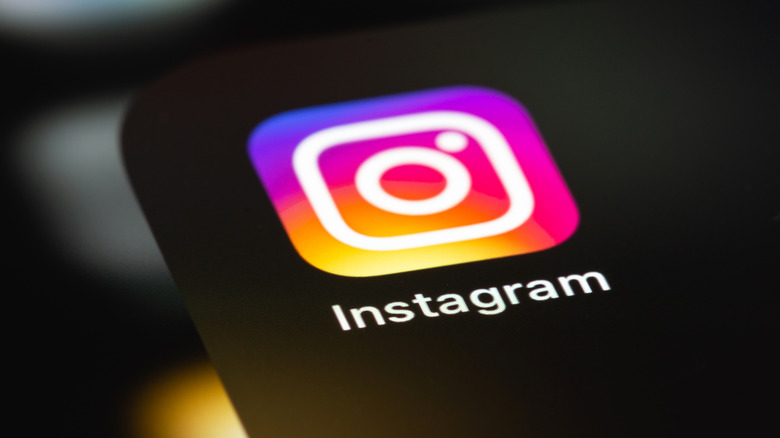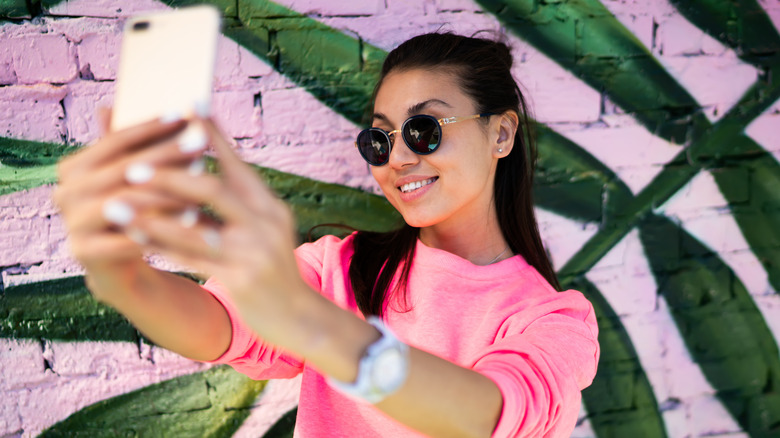How To Tell If An Instagram Brand Message Is A Scam Or Real
One of the biggest inquiries about social media is typically what it's really like to be an Instagram influencer. Influencers' lives appear lavish and rich on Instagram with brands paying them for promotion on their platforms as well as offering them free trips, products, and more. Brand deals are a core part of how influencers make their money, but there may be more to how Instagram influencers really make their money than meets the eye.
Influencer culture exploded over the last decade, but it's shifting once more. Micro-influencing is the future of influencing at present, which simply means that brands are partnering with many smaller accounts (a few thousand followers compared to hundreds of thousands or millions) rather than one massive account such as Kim Kardashian or Ariana Grande (via Built In). This benefits both companies and Instagram users with smaller accounts. Companies can diversify their marketing while the accounts they partner with gain exposure and the benefits of influencing, too. It's a win-win.
However, because this shift is occurring on the Instagram landscape, more and more people with smaller accounts are receiving messages that appear to be brands wanting to work with them. Here's how to tell if they're real or scams.
Always consider how professional the brand appears to be
When looking at whether a message on Instagram is real or not, begin with the basics. Is the message riddled with typos and syntactical errors? Scam messages often fall into grammatical and linguistic pitfalls while trustworthy brand messages don't.
Common Instagram scams include accounts that sell followers and likes and accounts that deal in investing (via VPN Overview). Fake followers are purchasable online, but Instagram accounts dedicated to them typically steal your money without following through. The same goes for "investment accounts." Also, you don't want to work with brands that say they want to work with you but need you to pay shipping for their product. According to the style blog Sightsee Style, this is becoming increasingly popular with scammers. They build trust by telling you they'll send you their product, but then require shipping for something that never comes or is a complete knockoff.
Real brand representatives will be professional and earnest. Other warning signs are if the messages have too many emojis or other cutesy language, it's a vague offer that doesn't actually inform you of anything, the deal is written as a comment to one of your posts instead of a DM, and brands that reach out that haven't followed you or ever interacted with you (via The Uncorked Librarian).
Brand deals are big deals, and they should be considered carefully. If anything seems fishy, follow your gut — and always research the company before messaging back!

